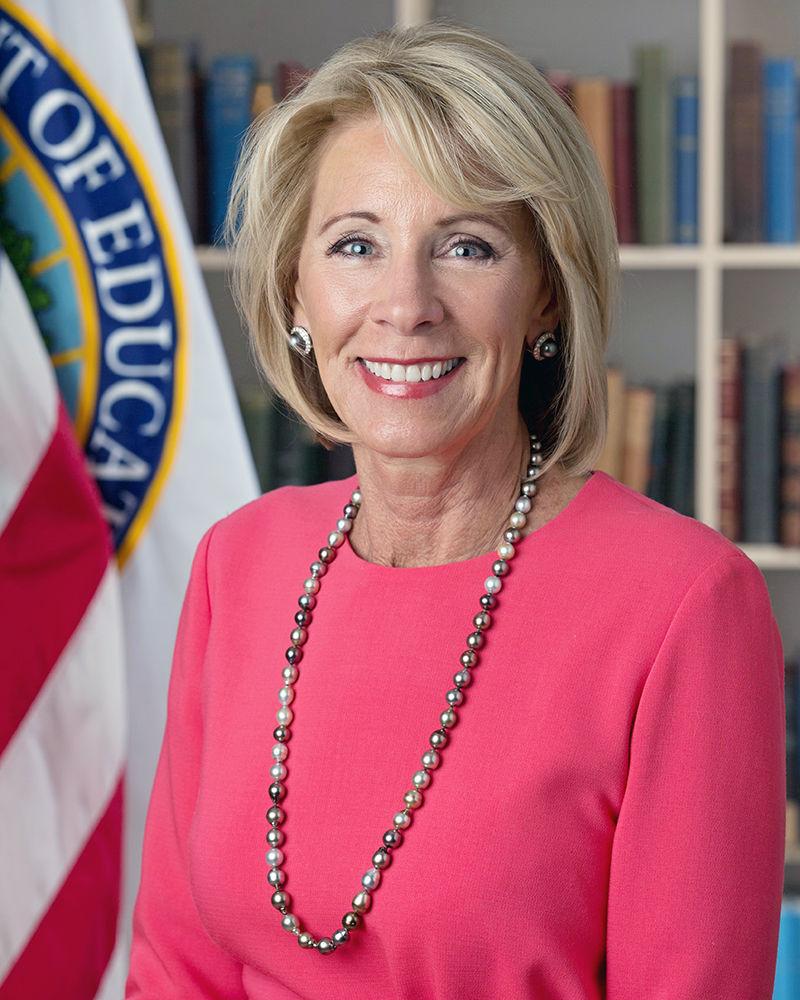Betsy DeVos, the Secretary of Education, spoke on Sept. 7 about her plans to change Title IX policy, specifically related to sexual assault. This announcement has been met with reactions both on a national and local level, as parties attempt to figure out the impact on students on campuses all across the nation, including NC State.
Title IX is legislation passed 45 years ago that states: “No person in the United States shall, on the basis of sex, be excluded from participation in, be denied the benefits of, or be subjected to discrimination under any education program or activity receiving Federal financial assistance.”
“In 2011, the Department of Education’s Office for Civil Rights put out a Dear Colleague Letter, so that really took what Title IX was saying about equal access and put it into context for institutions, specifically in regards to sexual assault and helped to outline and clarify what the institutions role needs to be in those cases,” said Lisa LaBarbera-Macoste, director of the Women’s Center.
LaBarbera-Macoste also described the student conduct process and burden of proof involved in sexual assault cases at NC State.
“As of right now, all student conduct violations are all held to a preponderance of evidence,” LaBarbera-Macoste said. “Preponderance of evidence is 51 percent, more likely than not that a case occurred, and that’s not just for sexual assault, that’s for all violations of the code of conduct. Based on what DeVos is saying, she is concerned about a few things: the way that institutions utilize preponderance of evidence as opposed to a higher standard as well as resources that are given to the accused.”
Robinette Kelley, associate vice provost for equal opportunity and equity and deputy Title IX coordinator in the Office for Institutional Equity and Diversity, expressed concern with how DeVos’ proposed changes would raise the burden to prove sexual assault.
“If she changes the standard of proof, then it will be more difficult for victims [and] survivors to come forward because it could have a chilling effect,” Kelley said. “It will be more difficult because the burden to prove that something happened to them has now increased, and so it is more difficult for them.”
Maggie Schroder, a fourth-year studying social work and Spanish, president of The Movement, a student organization on campus that leads workshops that strive to educate the NC State community about interpersonal violence intervention and prevention, gave her thoughts on proposed changes to Title IX policy.
“We don’t really know if universities would be held to the same standard to do the right thing by survivors, but I would hope that NC State as an institution would continue to do the right thing because, as of right now, from my point of view as a student and as a volunteer, I see that NC State tries to do the right thing by survivors, and I would hope that they would continue,” Schroder said.
LaBarbera-Macoste also emphasized that no matter what policy changes are made, the Women’s Center will continue to support survivors in any way that they can.
“The Women’s Center is a part of a system of resources on campus, so ourselves, the Title IX office, the Counseling Center, Students of Concern, Campus Police, University Housing, all of whom are practitioners who are really concerned with making sure that survivors get what they need to help them through their healing process across the board,” LaBarbera-Macoste said. “I feel really confident that we as practitioners on campus are going to continue to do the work that we are doing to help make sure that survivors know their rights, they know their processes and they get connected to resources so that they can continue to retain at the institution and be successful academically.”








